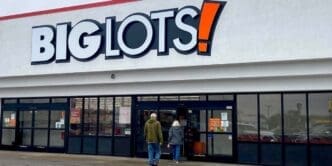Big Lots, a well-known discount retailer, has recently announced a significant development that may alter its trajectory. The company has struck an agreement with Gordon Brothers Retail Partners, a strategy aimed at preserving between 200 to 400 of its stores across the United States.
This deal comes on the heels of a failed rescue plan with Nexus Capital Management, which fell apart due to additional financial constraints. The new arrangement promises a $496 million package that, if approved, includes $304 million allocated for debt payments and $17 million to cover unpaid rent. The agreement is not merely a financial transaction but a critical step in maintaining employment for thousands of individuals working in stores, distribution centers, and certain corporate roles.
CEO Bruce Thorn emphasized the importance of this deal, stating that it offers the best chance to maximize value and ensure the continuity of Big Lots’ operations. The outcome of these negotiations is pivotal, as failing to secure this agreement could lead to liquidation, a scenario deemed less favorable for the company’s assets and creditors. The proposed agreement was presented in the U.S. bankruptcy court, where several creditors have raised objections to some of its terms.
The discount chain has already initiated going-out-of-business sales and halted new inventory orders, actions underscoring the urgency of the situation. Without a successful agreement, the company warns of a continuous decline in the estate’s value, highlighting the precarious position Big Lots finds itself in. Despite these challenges, the involvement of Variety Wholesalers, a private owner of over 400 discount stores in the Southeast and mid-Atlantic, points to a potential path forward for the retailer.
As Big Lots navigates these turbulent times, the deal with Gordon Brothers Retail Partners represents a lifeline that could sustain its operations and preserve jobs. The outcome will significantly impact the company’s future and its capacity to remain a staple in the discount retail market.
Source: Businessinsider








